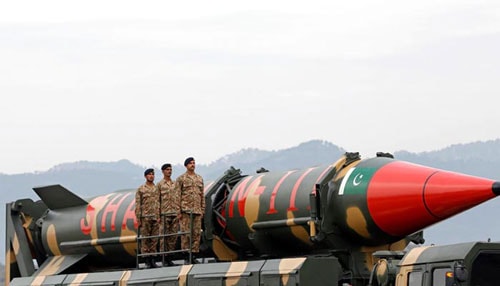Staff Reporter Islamabad
Pakistan does not consider itself bound by any of the obligations of the Treaty on the Prohibition of Nuclear Weapons and the agreement does not constitute a part of conventional international law, the Foreign Office said on Friday.
The nuclear weapons ban treaty had taken effect last Friday, but the milestone was marred by the lack of signatures from the world’s major nuclear powers. Despite the missing participants, the occasion was marked by praise from the United Nations and even Pope Francis.
In a statement, the FO said the treaty, which was adopted in July 2017, was negotiated “outside the established UN disarmament negotiating forums”.
“None of the nuclear-armed states, including Pakistan, took part in the negotiations of the treaty which failed to take on board the legitimate interests of all the stakeholders,” the press release said, adding that many non-nuclear states had also refrained from becoming parties to the pact.
The FO noted that the United Nations General Assembly, at its first special session devoted to nuclear disarmament in 1978, had agreed by consensus that in the adoption of disarmament measures, “the right of each state to security should be kept in mind, and at each stage of the disarmament process the objective would be undiminished security for all states at the lowest possible level of armaments and military forces”.
“Pakistan believes that this cardinal objective can only be achieved as a cooperative and universally agreed undertaking, through a consensus-based process involving all the relevant stakeholders, which results in equal and undiminished security for all states,” the statement emphasised.
The treaty seeks to prohibit the use, development, production, testing, stationing, stockpiling and threat of nuclear weapons.










